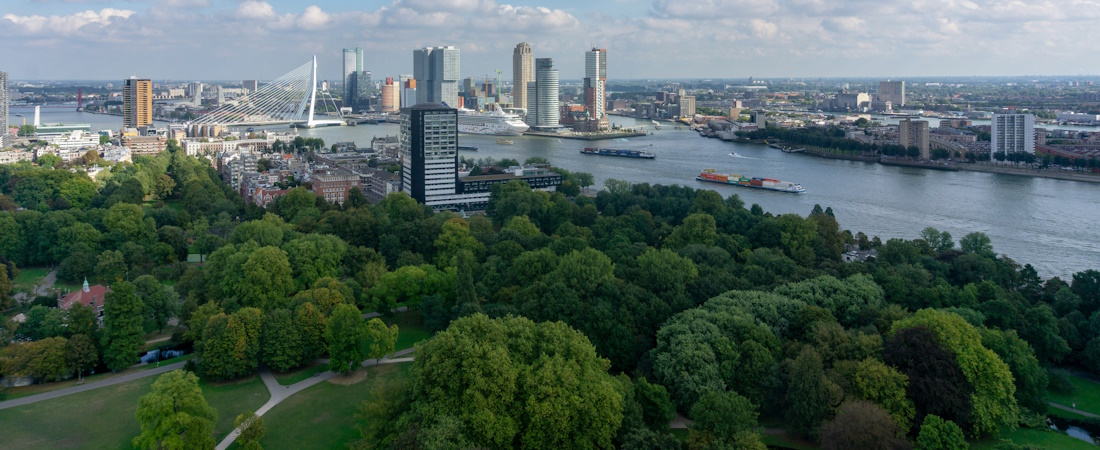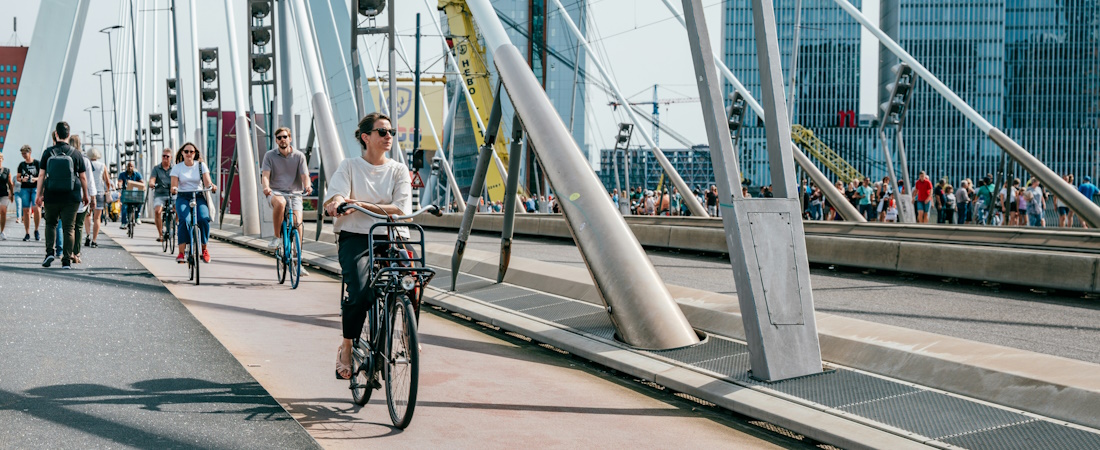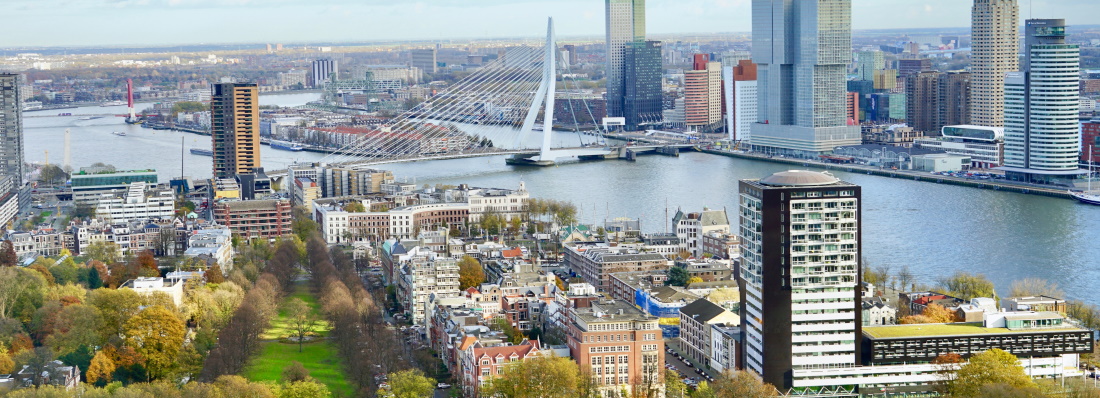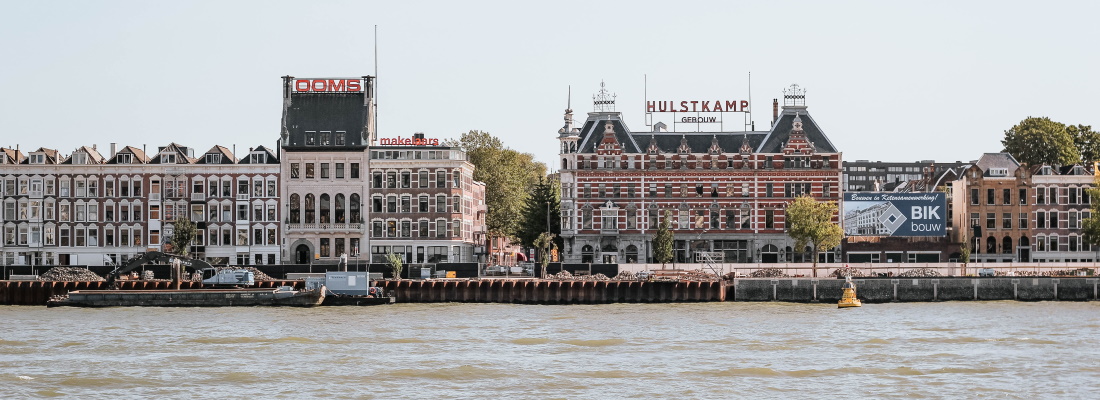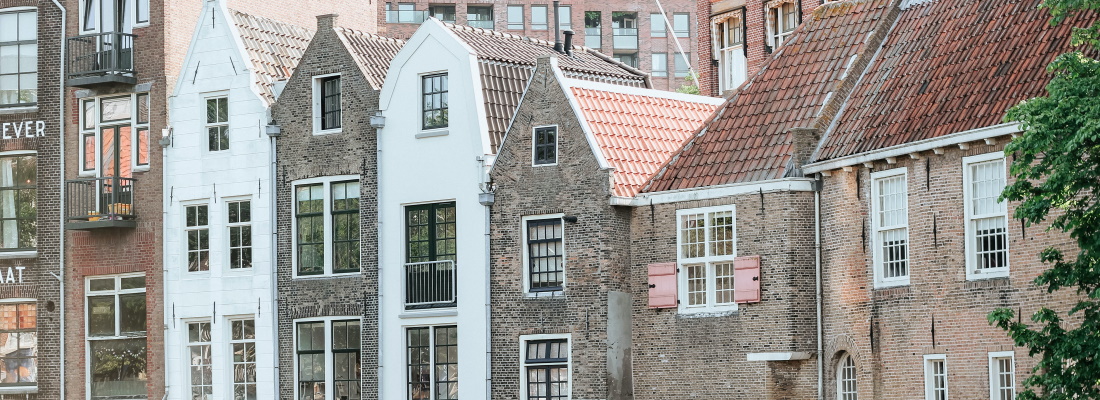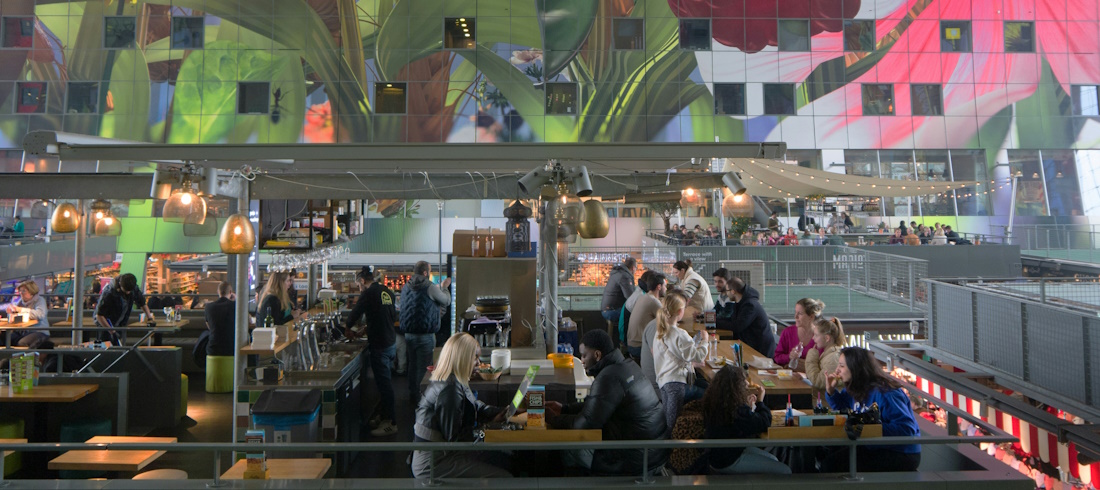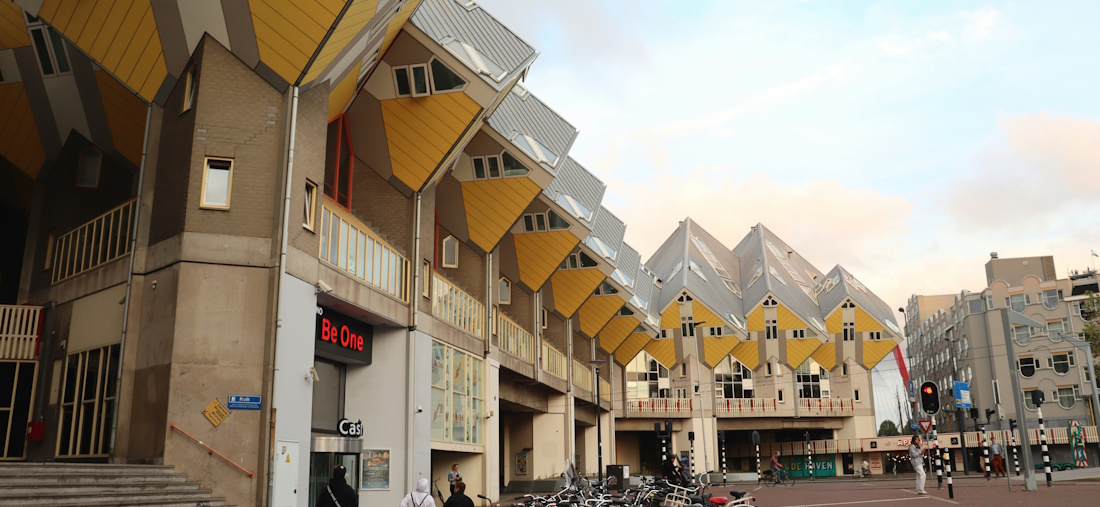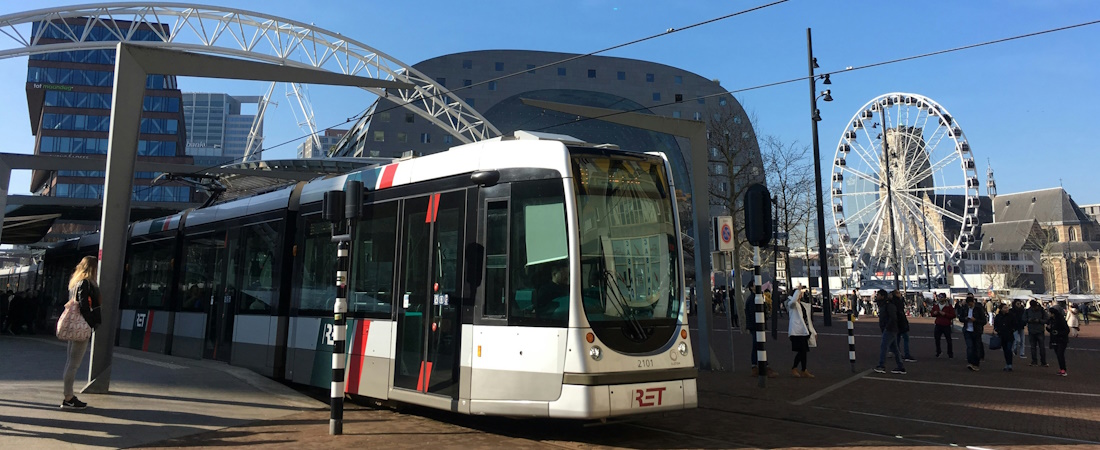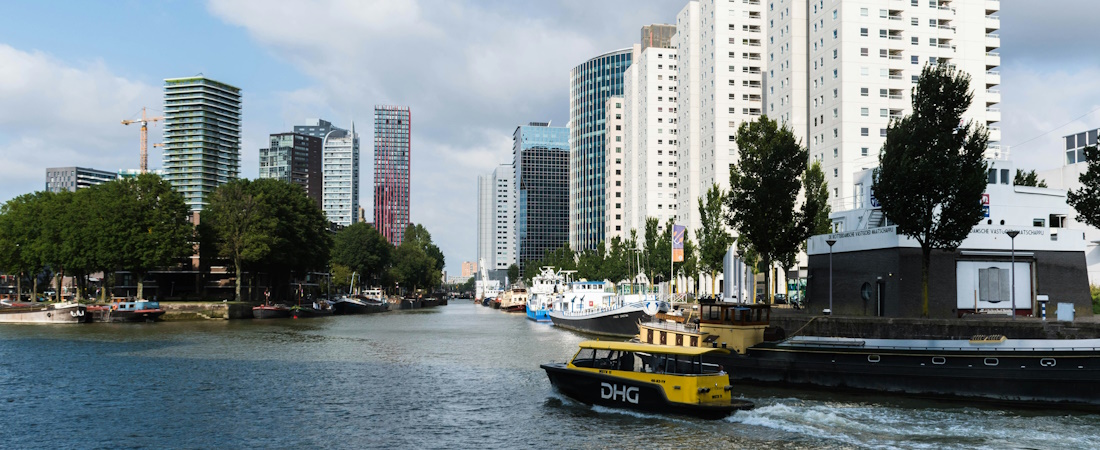Situated in South Holland and divided by the Nieuwe Maas, Rotterdam stands as a major port city that has overcome significant historical hardships. If you move here, you are likely to settle in quite quickly and will generally be welcomed with open arms to a city often thought of as a symbol of resilience and regrowth.
Living in Rotterdam
After the Rotterdam Blitz of 1940 flattened the city, the reconstruction of the city centre gave Rotterdam a unique opportunity to rebuild and redefine itself. Today, living in Rotterdam means experiencing its experimental architecture, which is unique among Dutch cities, alongside the vibrant energy that makes it an exciting place to call home. Innovative designs, such as the cube houses and the Markthal, serve multiple purposes, from accommodation and workplaces to top attractions and landmarks.
Newcomers to Rotterdam may encounter a few challenges when adjusting to the city’s transport network. Although many Dutch people speak English, transport signage and announcements are typically in Dutch, which could make figuring out schedules and ticketing tricky.
Learning Dutch is a worthwhile investment for integration into the local culture. While English is widely spoken, understanding Dutch can open doors to better job opportunities and deeper social connections. Services like the Rotterdam Expat Centre offer invaluable resources to help you settle in seamlessly.
Rotterdam’s thriving shopping, nightlife, and restaurant scenes also mean there’s always something to do. Whether you’re haunting the local markets, catching a show, or indulging in the city’s lively culinary scene, you’ll find plenty to amuse yourself.
Lifestyle, Activities, and Landmarks in Rotterdam
Pros and Cons of Moving to Rotterdam
Transport Network in Rotterdam
Cost of living in Rotterdam
While some parts of the Netherlands are expensive, Rotterdam’s cost of living is comparatively low. Living in Rotterdam allows you to enjoy a good quality of life without the high price tag attached to cities such as Amsterdam.
Beyond housing, key expenses include utilities, groceries, transport, and healthcare. You can manage these by adopting simple strategies like energy-efficient practices, cycling instead of relying on public transport, and comparing healthcare plans to find the best fit.
Rotterdam offers diverse housing options across its neighbourhoods. The city centre boasts modern high-rises and a buzzing urban atmosphere, but has a higher price tag. Areas like Kralingen offer green spaces and stylish homes that are popular among expats, while Rotterdam West provides affordable housing and a rich arts scene.
Accommodation in Rotterdam
Cost of Living in Rotterdam
Working in Rotterdam
Families and children in Rotterdam
If you have kids, Rotterdam provides a range of extracurricular activities to keep them engaged. Sports clubs for football, hockey, and swimming are widely available and encourage teamwork and fitness. Music and arts institutions offer lessons in instruments, dance, and visual arts, sparking creativity in young minds.
When choosing schools, consider the difference between Dutch and international options. Although some offer bilingual programmes, Dutch schools emphasise local traditions and language. International schools often follow global curricula such as the International Baccalaureate, which is taught in English.
Safety is a priority in Rotterdam’s parks and playgrounds. Public spaces are regularly maintained and designed with soft ground materials and age-appropriate equipment to minimise accidents. Family-friendly locations like Het Park by the Euromast offer plenty of space for picnics and outdoor fun, making it easy to enjoy quality time together.
Healthcare and Hospitals in Rotterdam
Education and Schools in Rotterdam
Climate in Rotterdam
Like most of the Netherlands, Rotterdam has a temperate oceanic climate, although its position on the coast gives it slightly milder weather than cities further inland. Summers (June to August) are warm to mild, and you can use the long, sunny days to head to the beach or explore the city’s waterfront areas.
The temperature cools off a bit as autumn gives way to winter, although it stays fairly mild. Late autumn and early winter (October to December) tend to be the wettest months, while April and May are the driest.
With so much to offer, Rotterdam is a destination well worth considering if you are planning a move to the Netherlands. Living in Rotterdam provides an attractive combination of lifestyle perks, a low cost of living, and excellent infrastructure and amenities, making it a fantastic place to call home.
